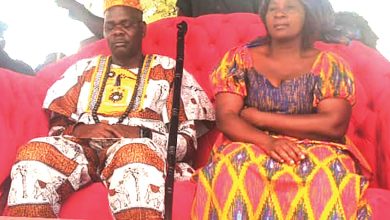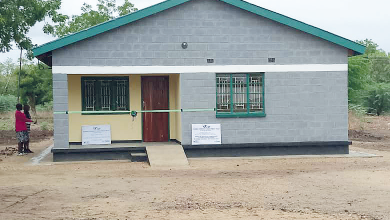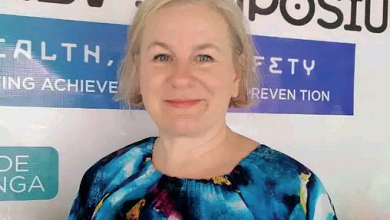A mixed Cabinet
President Peter Mutharika’s Cabinet has received kudos for being lean, inclusive and with diverse expertise. It has also attracted mixed views for including people with pending criminal cases and a backlash for flouting the Gender Equality Act (GEA 2013).
Size, quality, regional balance
The North has five: Second Vice-President Enock Chihana, Minister of Justice and Constitutional Affairs Charles Mhango, Minister of Health and Sanitation Madalitso Baloyi, Minister of Lands, Housing and Urban Development Jappie Mhango, and Deputy Minister for Gender, Children, Disability and Social Welfare Martha Ngwira.
The Centre has six: Vice- President Dr Jane Ansah, Minister of State Alfred Gangat a , Mini s ter of Homeland Security Peter Mukhito, Deputy Minister of Homeland Security Norman Chisale, Minister of Labour, Skills and Innovation Joel Chigona and Minister of Youth, Sports and Culture Patricia Wiskes.
East has four, namely: Minister of Information and Communication Technology Shadric Namalomba, Minister of Education, Science and Technology Bright Msaka,

Minister of Agriculture, Irrigation and Water Development Roza Fatch Mbilizi, and Minister of Transport and Public Works Feston Kaupa.
The South has eight: Minister of Finance, Economic Planning and Decentralisation, Joseph Mwanamvekha,
Mini ster of Foreign Affairs and International Cooperat ion, Geo rge Chaponda. Ohers are Minister of Local Government and Rural Development Ben Phiri, Minister of Industrialisation, Business, Trade and Tourism George Patridge, Minister of Gender, Children , Disability and Social Welfare Mary Navichi, Minister of Natural Resources, Energy and Mining Jean Mathanga and Deputies Chimwemwe Chipungu (Health) and Francis Foley (Education).
Overall, the Cabinet is smaller than former president Lazarus Chakwera’s first Cabinet which had 31 members. To achieve this, several portfolios previously standalone ministries have been merged and will now be under one minister.
Governance pundits Wonderful Mkhutche and Gift Sambo from University of Malawi (Unima) hailed Mutharika for appointing a lean and regionally-balanced Cabinet, but also with ‘somewhat’ quality members.
Sambo said most members in the Cabinet have the experience of serving at that level, giving them stability and institutional memory, but also critical ideological and policy consistency.
“I am inclined to believe that the new Cabinet has what it takes to adapt to the demands of the prevailing economic environment globally,” he said.
Failed gender card
Further, the Gender Equality Act (GEA) prescribes 60:40 ratio in appointments, meaning 60 percent of either gender should be balanced with 40 percent of the other, but Mutharika has appointed just seven women, representing 29.1 percent.
They are Ansah, Fatch Mbizili, Baloyi, Navicha Mathanga, Wiskes and Ngwira. Yesterday, executive director of Women’s Legal Resource Centre Maggie Kathewera Banda, expressed concern over lack of adherence to the Malawi GEA, saying it was more political, with little consideration for the law.
She said: “Malawi decided that we should have a law to guide public appointments and therefore the appointing authorities have an obligation to implement laws. That’s what democracy calls for.
“We will keep reaching out to them to see how we can move forward on other appointments. I also don’t understand why we have to negotiate all the time for women to be considered. 57.1% of the voters were women. If their votes matter, their voices should matter too.”
Mixed views on criminal allegations The full Cabinet comes after the Malawi Law Society (MLS) expressed concern that some members have not been cleared of allegations of engaging in corrupt practices or criminal activities.
In a statement, the MLS said while every person is presumed innocent until proven guilty, such appointments risk undermining public confidence in the Government’s commitment to the rule of law and its declared stance against corruption.
Gangata , Mwanamvekha, Fatch Mbilizi, Mukhito, Jappie Mhango, Chisale, Mathanga, and Namalomba, including Second Vice-President Enock Chihana, have pending court cases.
Yesterday, MLS President Davis Mthakati Njobvu said in a brief interview that they simply provided advice which can be taken or not He said: “If cases arise which need further action from the MLS, we will take that up, but that will depend on the facts presented. It may not just be MLS, but also the Civil Society.”
Accountability pundit Willy Kambwandira said inclusion of individuals with past corruption or criminal allegations undermines public confidence in the administration’s seriousness about reform and accountability.
Human Rights Defender s Coalition (HRDC) chairperson Gift Trapence said to bring confidence and trust to his administration, Mutharika needs to reverse some of the appointments.
But Mkhutche said the President must make sure he tames such individuals so that this past might not brand his government as one being led by people who violated the law.
Advocate Khumbo Soko also took to his Facebook page, cautioning against pronouncing that all those who are answering criminal charges should be disqualified from public office.
“I have seen prosecutors launch criminal proceedings against people when there is hardly any evidence against them. There are cases out there that are that hopeless.
“In one case, the Supreme Court actually denounced the Prosecution as ‘persecution’. It’s not actually that difficult to be called an ‘accused person’. Worry about the evidence later. That’s why arresting people is the easier bit. Putting them away, not so much.”
This is Mutharika’s first full Cabinet after winning the September 16 general elections.





